Is your AC on but temperature rising in your home? This can be a frustrating and uncomfortable issue, especially during hot summer days. Whether it’s due to incorrect thermostat settings, dirty air filters, or more serious issues like low refrigerant levels or electrical problems, it’s essential to identify the cause quickly. In this article, we will walk you through common reasons your AC might not be cooling and provide actionable solutions to restore comfort to your home.
Key Takeaways
- Start by checking your thermostat settings; incorrect modes can prevent your AC from working right.
- A dirty air filter can block airflow, making your AC work harder, so make sure to replace it regularly.
- If your AC is still not cooling, it might be time to call an HVAC professional to check for issues like low refrigerant or electrical problems.
Incorrect Thermostat Settings
Begin by checking the thermostat settings if your AC isn’t cooling. Ensure it’s set to ‘cool’ mode. If it’s on ‘heat’ or ‘off,’ the system won’t produce cold air.
To ensure the AC activates:
- Make sure the thermostat temperature setting is low enough to trigger cooling.
- Verify that the thermostat is properly placed.
- Confirm the thermostat is set correctly.
- Check that the thermostat is receiving power.
If the thermostat is set too high, the AC won’t activate.
If the thermostat settings are correct but the AC isn’t cooling, further investigation is needed. There may be deeper issues within the system requiring a thorough inspection.
Dirty Air Filter
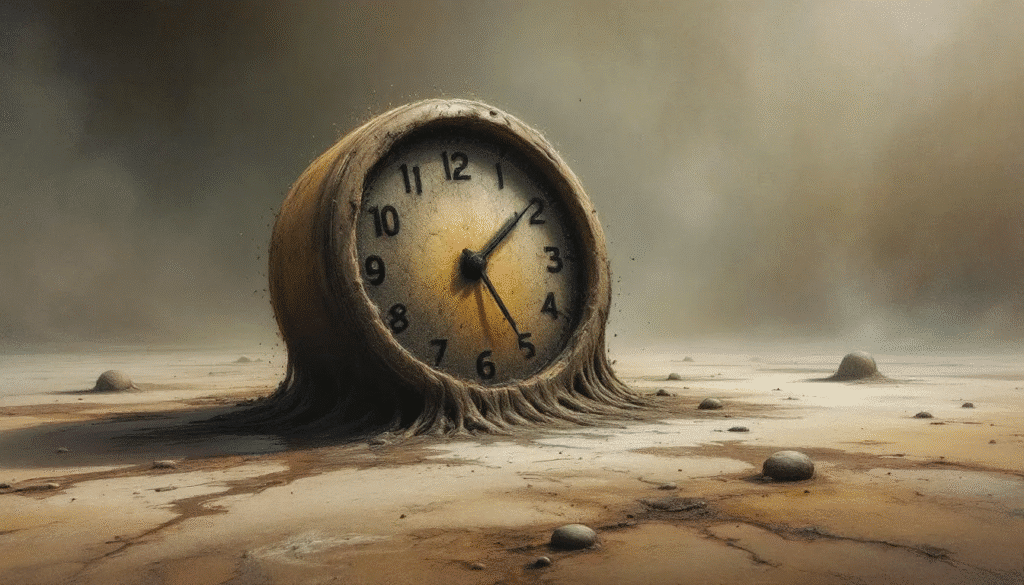
A dirty air filter can obstruct airflow, causing the AC to run ineffectively. A clogged air filter recirculates warm air, reducing comfort and forcing the AC to work harder, which increases energy bills.
Dirty air filters lead to reduced airflow and inadequate cooling, making the AC work harder. Regularly checking and replacing filters maintains proper airflow and efficient function, helping the AC distribute cool air evenly. When the air conditioner recirculates, it ensures that the cool air is effectively utilized.
Inadequate airflow from a dirty filter can prevent cool air from reaching other rooms effectively. Keeping your air filter clean avoids these issues and maintains a cooler, more comfortable home, even in high humidity.
Clogged or Blocked Outdoor Unit
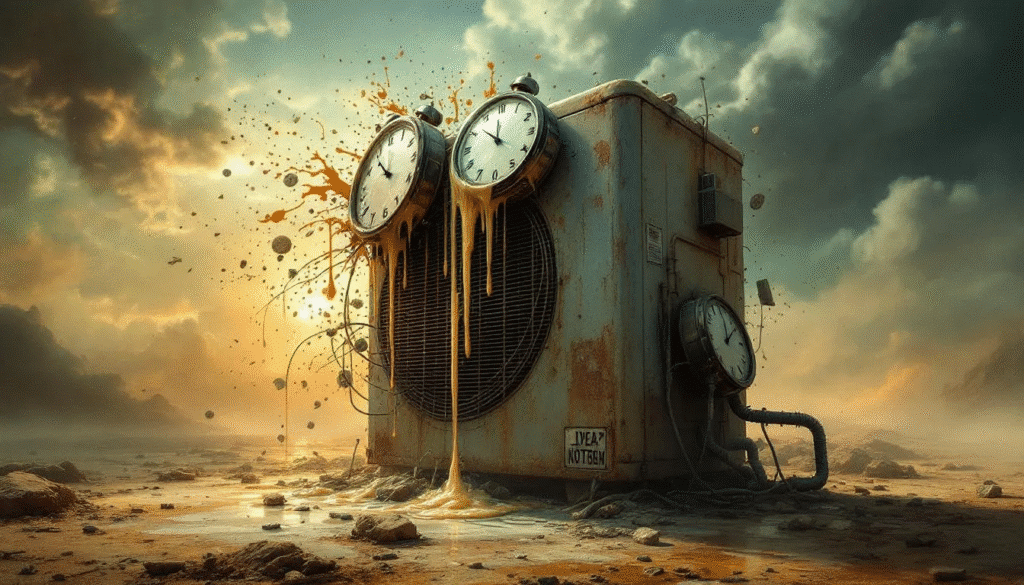
Debris or obstructions around the outdoor unit can significantly hinder performance. The outdoor condenser unit needs to expel heat efficiently, and any blockage, including other debris and dust, can reduce its cooling ability, especially if there is a dirty condenser. Examples of blockages include:
- Dirt
- Grass
- Leaves
- Grime
Obstructions can significantly affect cooling efficiency. Regularly check and clean the area around the outdoor unit to ensure optimal performance and prevent debris buildup that can block airflow, keeping your AC running smoothly.
Cleaning the outdoor unit is a simple yet effective way to maintain efficiency. Keeping the area clear ensures the unit operates without hindrance, providing your home cleaner with the cool air it needs.
Low Refrigerant Levels
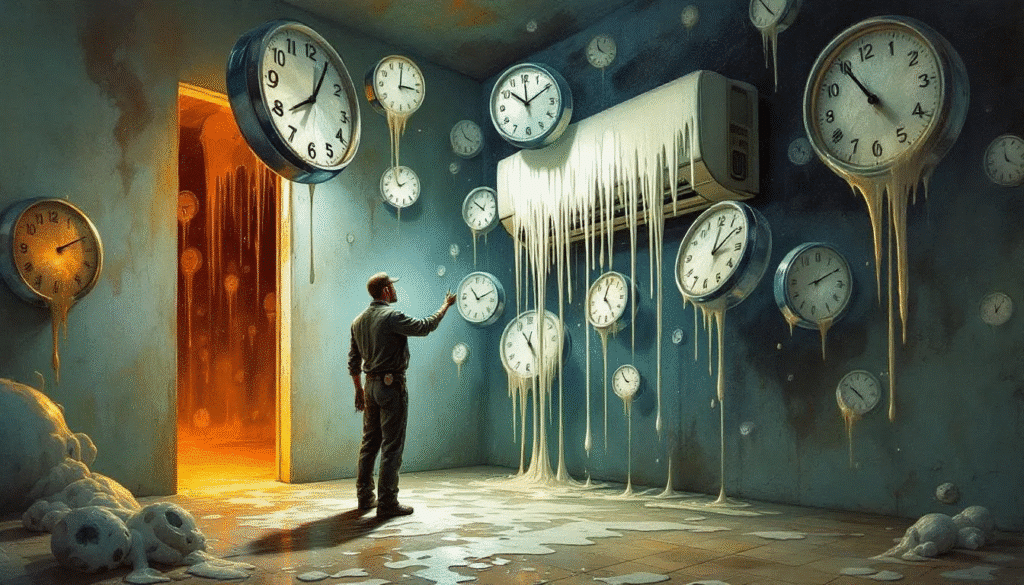
Low refrigerant levels can prevent the air conditioner from producing cold air. Without enough refrigerant, the AC can’t cool effectively. If there’s a leak, call a service technician to repair it and recharge the refrigerant.
If refrigerant issues are causing improper cooling, have a professional check the refrigerant lines levels. They may need to add more refrigerant and repair any refrigerant leaks to restore cooling capacity. Ignoring low refrigerant levels can lead to severe problems and higher repair costs.
A professional HVAC technician can accurately diagnose and fix refrigerant issues, ensuring efficient operation. Handling refrigerant requires specialized knowledge and equipment, so don’t attempt it yourself.
Frozen Evaporator Coil
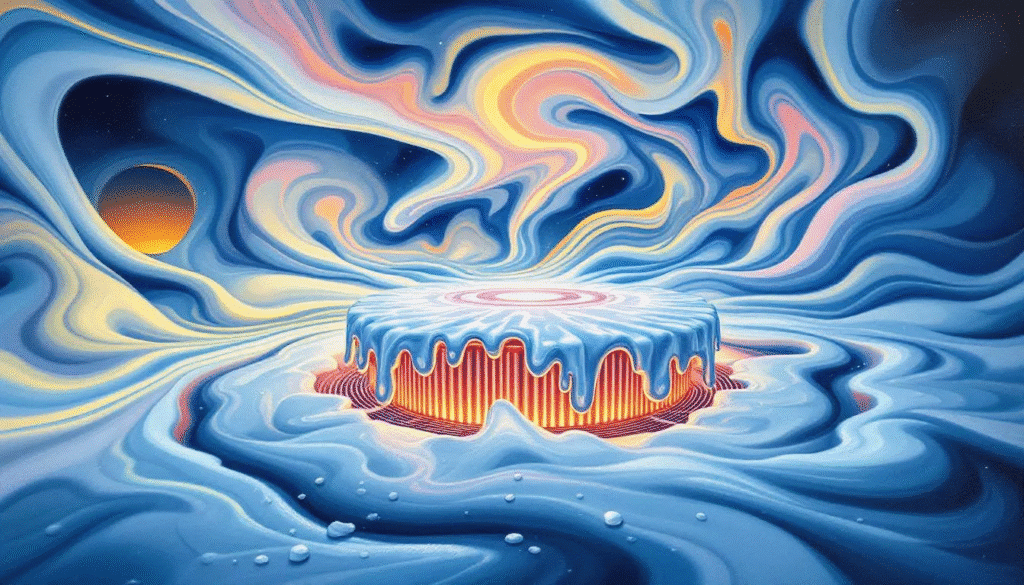
Visible icing on the evaporator coil indicates it may be frozen, disrupting the AC’s ability to cool the home. A frozen coil can’t absorb heat from the air, leading to inadequate cooling.
Turn off the air conditioning unit when the evaporator coil is frozen. Running the system with a frozen coil can cause serious damage. It’s best to call an HVAC professional to resolve this issue.
Let the evaporator coil thaw completely and check if the problem resolves. Using a hair dryer to defrost the evaporator coils should be done carefully to avoid damage to the condenser coil.
Leaky Air Ducts
Leaking air ducts can draw hot air back into the system or let cool air escape through vents, reducing overall efficiency. Ducts in unconditioned spaces are more prone to leaks, leading to greater energy loss and allowing summer heat coming to enter the home.
Effective insulation minimizes air leaks and can reduce cooling costs by 20-40% during hot months, helping maintain a stable indoor temperature. Using mastic to seal ductwork is recommended as it is more durable than tape.
Sealing ducts and adding adequate insulation can boost HVAC efficiency and lower energy bills. Ensuring your ductwork is in good condition is crucial for maintaining a cool, comfortable house while also optimizing heating.
Electrical Issues
Electrical issues, such as faulty wiring or a malfunctioning compressor, can lead to inefficient cooling. Common culprits include tripped circuit breakers, loose wire connections, and malfunctioning compressor or fan motors.
An increase in electricity bills can signal that the AC is not functioning effectively and needs repair. If there are electrical problems, contact a licensed HVAC professional for diagnosis and repair.
Undersized or Aging AC Unit
An AC system over ten years old may start losing its cooling ability. Aging units often require longer operation times to cool spaces, leading to increased energy consumption. A decade-old air conditioning system may struggle to cool efficiently, indicating it may be time to replace a replaced unit.
An inadequately sized AC unit can lead to insufficient cooling, especially during extreme heat. Improper installation or recent home renovations can contribute to an undersized unit. An undersized AC may struggle to keep up with high temperatures, leading to adequately cooling.
Consult a qualified HVAC professional to assess whether your AC unit is appropriately sized for current needs. Upgrading to a high-efficiency heat pump model can enhance cooling performance and reduce energy expenses for homes with outdated systems.
Poor Insulation
Poor insulation can lead to heat gain, making it harder for the AC to cool effectively. Drafty homes with air leaks can cause air conditioners to struggle to keep the home cool. Sealing and insulating ducts can significantly enhance energy efficiency.
Improved insulation results in better cooling efficiency for your AC system. Adding insulation and sealing air leaks helps your AC perform more efficiently and maintain a comfortable indoor temperature.
When to Call a Professional HVAC Technician
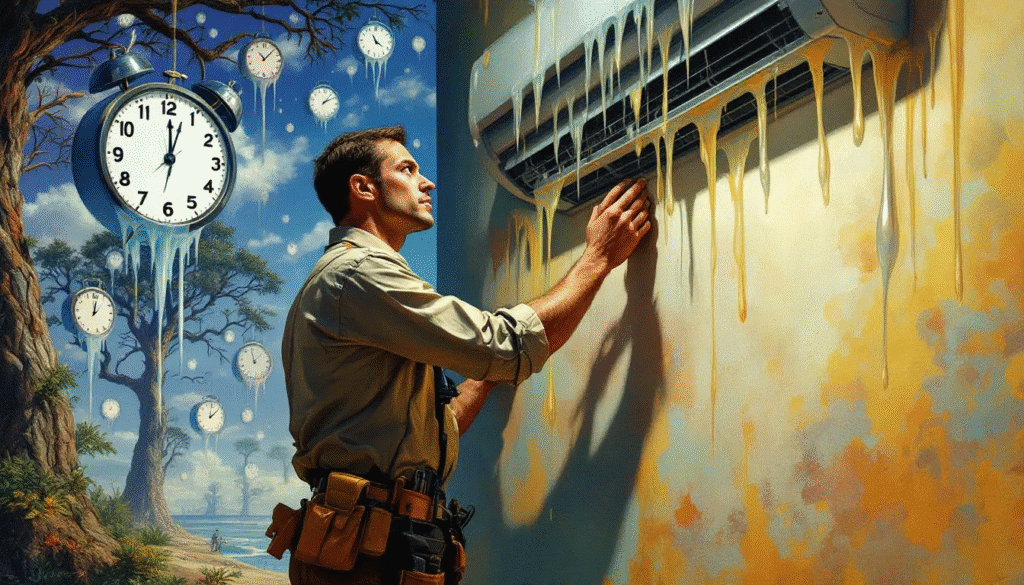
If the AC runs but doesn’t cool after checking settings and filters, call a professional HVAC technician. Issues that require professional expertise include:
- Clogged or blocked outdoor units
- Low refrigerant levels
- Electrical problems
- Frozen coils
Regular HVAC inspections can help identify issues before they escalate into costly repairs, providing an easy fix.
Continuing to run an AC that is not properly cooling can lead to minor issues escalating into major failures. Schedule ac service with trained professionals to keep your system run AC running efficiently and avoid expensive repairs.
Summary
To sum up, various factors can cause your AC to run but not cool your home effectively. From incorrect thermostat settings and dirty air filters to more serious issues like low refrigerant levels or electrical problems, understanding these common problems can help you troubleshoot and resolve the issue.
Remember, while some fixes are simple and can be done on your own, others require the expertise of a professional HVAC technician. Regular maintenance and timely repairs are key to keeping your air conditioning system working properly and your home comfortable.
Frequently Asked Questions
Why is my AC running but not cooling my home?
Your AC might be running but not cooling because of issues like incorrect thermostat settings, dirty filters, low refrigerant, or a clogged outdoor unit. Check these things out to get it running cool again!
How often should I replace my air filter?
You should check and replace your air filter every 1-3 months based on how much you use it and the air quality in your area. Staying on top of this helps keep your air clean!
What should I do if my evaporator coil is frozen?
Just turn off your AC to let the evaporator coil thaw and definitely call an HVAC pro to check it out. They’ll get it sorted!
How can I tell if my AC unit is undersized for my home?
If your AC can’t keep up on hot days and your home feels stuffy, it might be too small. A quick call to an HVAC pro can help you figure it out for sure.
When should I call a professional HVAC technician?
You should call a pro if your AC runs but isn’t cooling after you’ve checked the settings and filters. Don’t hesitate if you suspect low refrigerant or electrical issues—getting help early can save you hassle later!



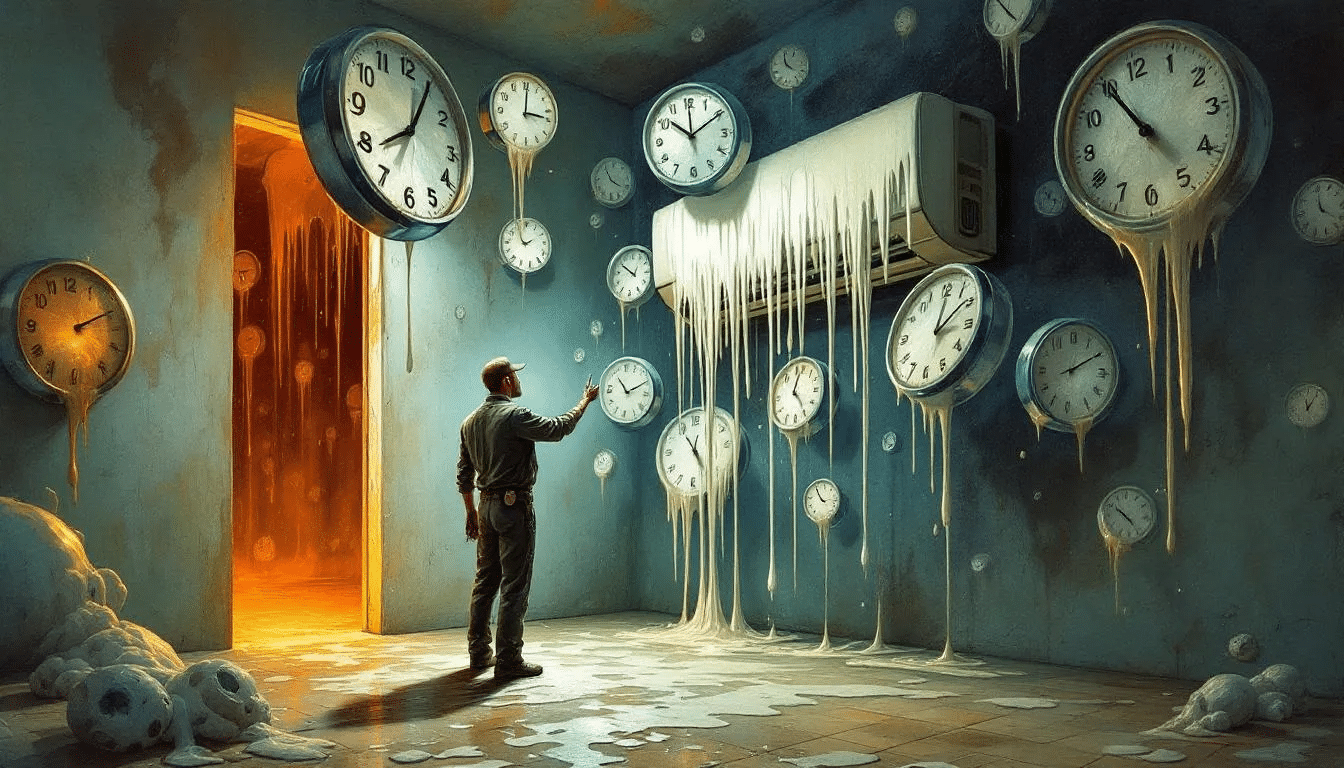
0 Comments